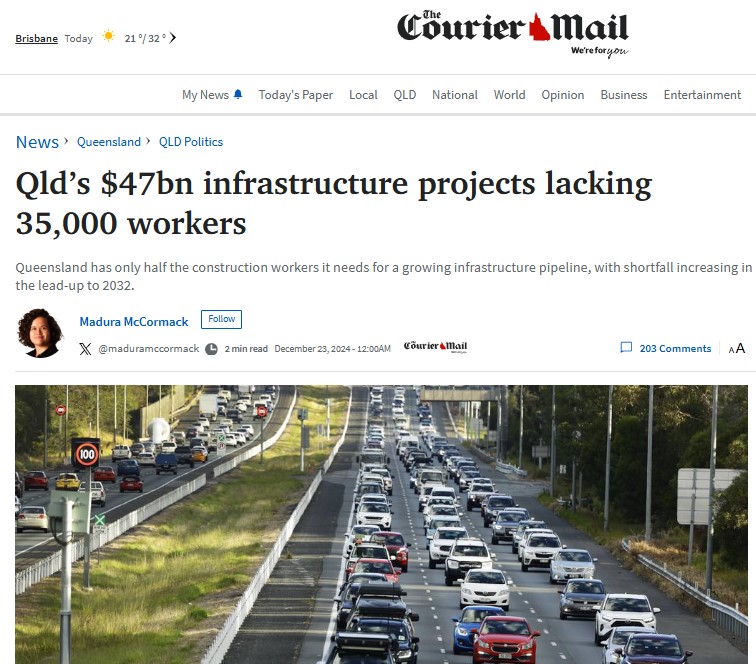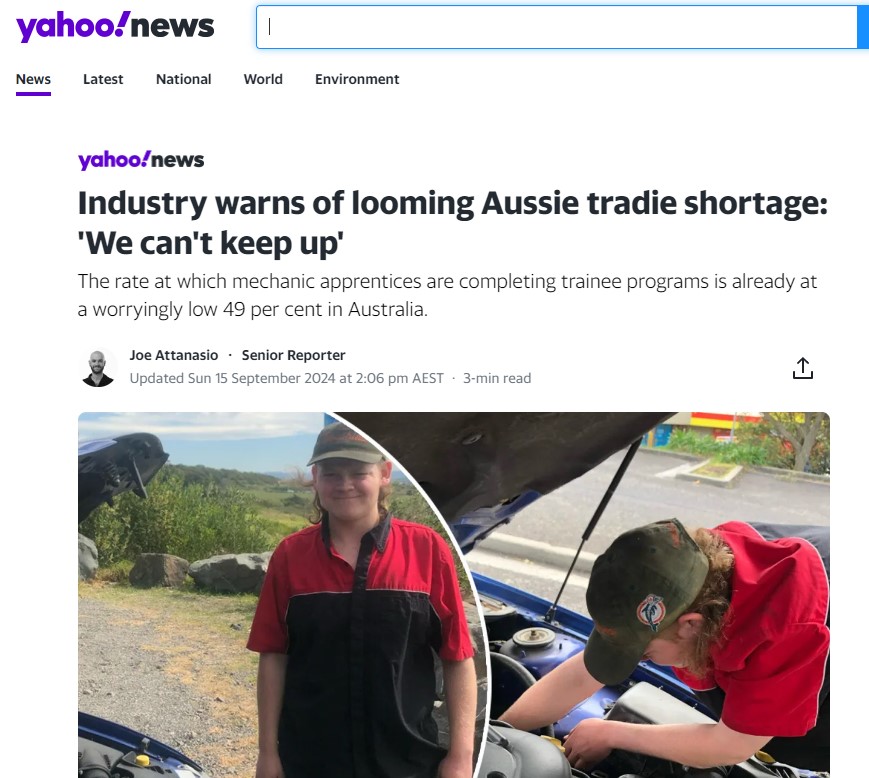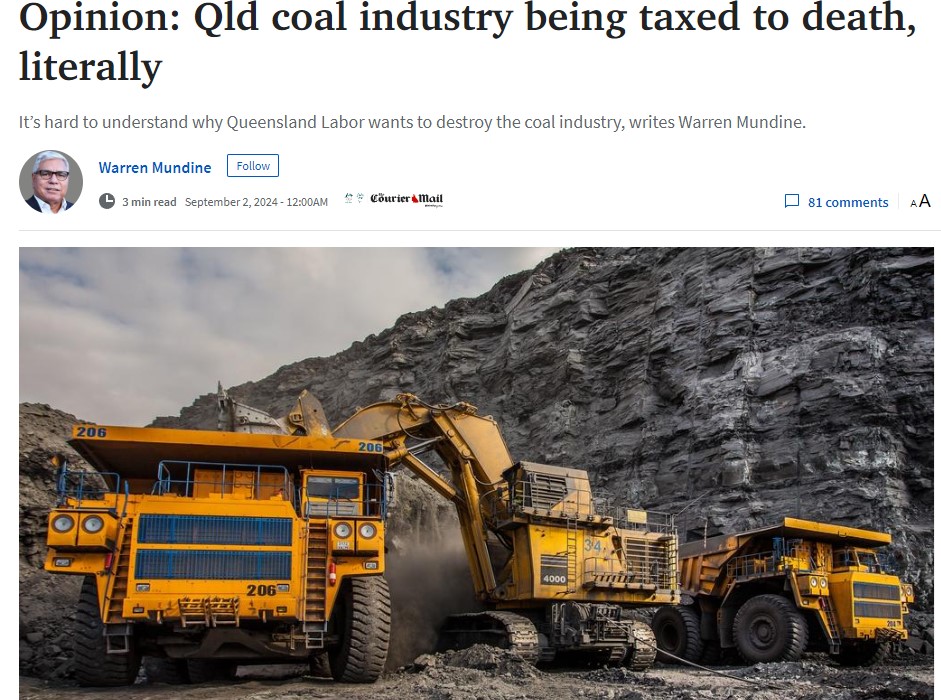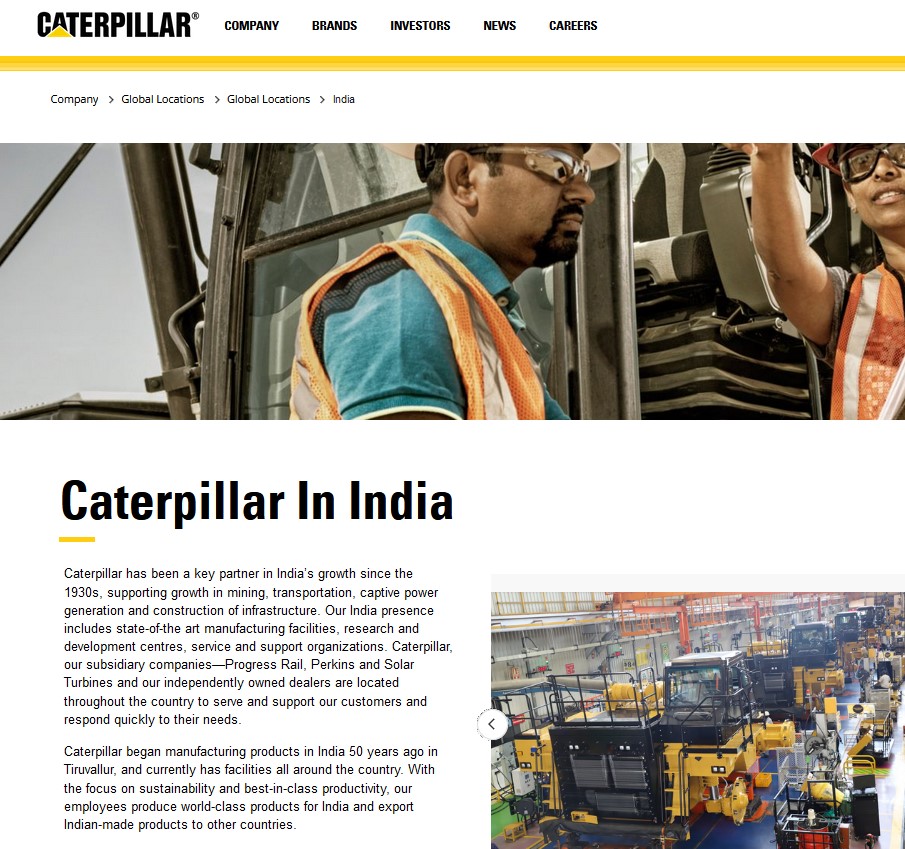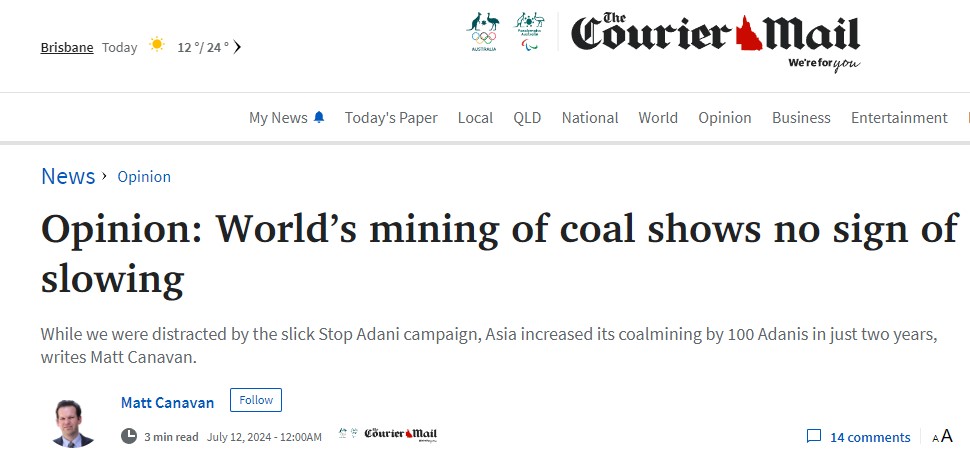
While we were distracted by the slick Stop Adani campaign, Asia increased its coalmining by 100 Adanis in just two years, writes Matt Canavan.
Remember all of that kerfuffle about the Adani mine? Led by Bob Brown, hundreds drove petrol cars to Queensland in protest, some glued themselves to city streets, and then federal Labor leader Bill Shorten said he did not support it.
It is now up and running and quietly producing 10 million tonnes of coal.
While we were distracted by the slick Stop Adani campaign, Asian nations increased their coalmining by an amount equal to 100 Adanis in just two years.
This incredible surge in coalmining has gone almost unreported in Australia.
The remarkable figures were confirmed two weeks ago in the release of the well-respected Statistical Review of World Energy.
These figures show that China’s coalmining has grown by 584 million tonnes per year (that is 58 Adanis) in just two years. India has added 199 million tonnes a year (20 Adanis), Indonesia 161 million tonnes (16 Adanis) and Mongolia 50 million tonnes (five Adanis).
To put these figures in context, Australia’s TOTAL annual coalmining output is 450 million tonnes.
All these countries signed up to net-zero-emission targets just before they let coalmining output skyrocket.
So given this apparent climate catastrophe, why aren’t the activists glueing themselves to the gates of the Chinese embassy or calling for a boycott of Bali?
Could it be that the well-funded climate campaigns are more about changing our government than changing the world’s climate?
We are constantly fed the mantra that unless Australia makes big cuts to its carbon emissions we will be an international pariah.How does that make any sense when the biggest nations in the world (China, India and Indonesia account for almost 40 per cent of the world’s population) are mining coal like it is the new black?
Australia’s mining industry employs more than a million people. These jobs reflect the investments made in mines many years ago.
But all of these mines, and therefore these jobs, have limited lifespans, usually only about 30 years. We will not run out of coal or other resources, but we will run out of mines if we do not continue to attract investment in new ones.
There are early warning signs that we are not getting sufficient investment.
Australia’s terms of trade have been at record highs since Russia invaded Ukraine.
The peak has even been higher than that achieved during the famed mining boom of the 2000s.
That boom peaked in 2012 when Australia attracted a whopping $115bn of investment in mining.
Over the past year, with even higher commodity prices, Australia attracted just $45bn in mining investment.
This $70bn investment gap is a “green tax” weighing down the Australian economy and threatening our future prosperity.
The deficit is almost all explained by the weakness in fossil fuel investment, despite the high prices of coal, oil and gas.
Back in 2012 we attracted $60bn in investment in coal, oil and gas.
Over the past year, with Labor-Green governments at state and federal levels discouraging investment in fossil fuels, we have attracted just $6bn.
The climate activists respond, once they have unglued themselves from the fixtures of parliament, that this is all fine because we can make money in the future from “green minerals” such as lithium, nickel and rare earths.
The problem is that fossil fuels made Australia $237bn last year, more than half of our mining exports.
Lithium and nickel amounted to just 10 per cent of that amount, and rare earths are too small to even be separately reported.
There is massive demand for our fossil fuel exports.
We should not trade a given and proven wealth creator for a “maybe” source of revenue sometime in the future.
Despite all the hype, we do not export any commercial quantities of hydrogen. And now even more proven exports such as nickel face an uncertain future.
Indonesia has increased coalmining to power new nickel refineries.
Despite having inferior ores to Australia, Indonesia now undercuts us on price in nickel markets, thanks to its cheap coal power.
Australia’s nickel industry instead sought to power its production through green energy. Already 1000 West Australian nickel jobs have been lost, and many more are at risk. The new Indonesian president plans to expand their nickel strategy to bauxite aluminium and copper, threatening jobs in eastern Australia too.
Maybe we could organise for Bob Brown to lead a naval convoy to Sumatra in protest at Indonesia’s penchant for building new coalmines.
Unfortunately, the Indonesian navy would probably turn back their boats quicker than Tony Abbott.
It makes much more sense for Australia to wake up to what is really happening in the world.
To keep the thousands of good-paying jobs we have here in Brisbane and the rest of the country, we need to mine the resources that we have and that our customers want.
#coalminingjobs
#skill shortages
#australiantrades
Home Page

